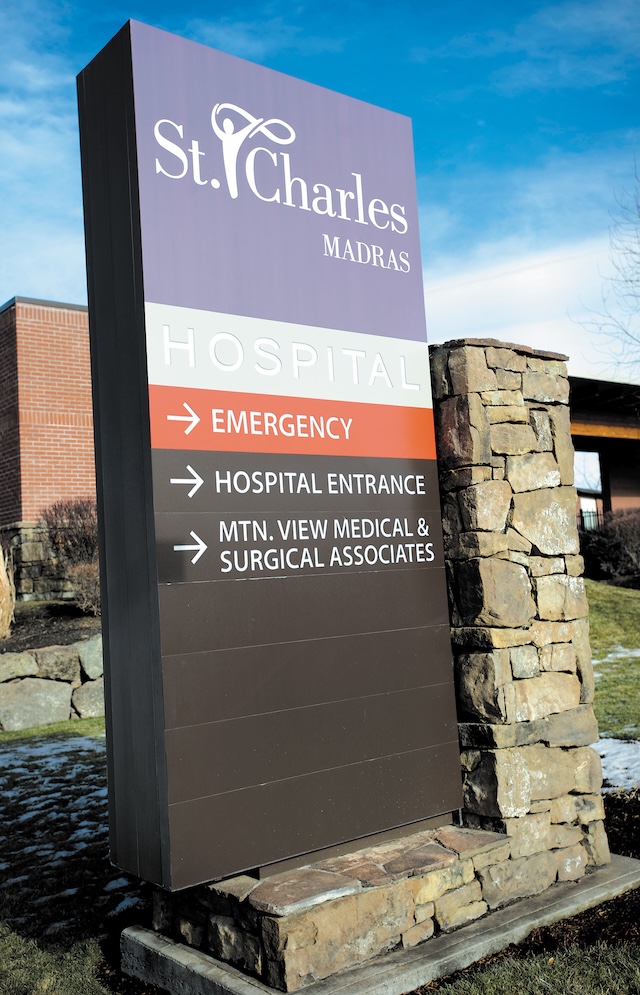Letters to the editor: Housing; Naloxone; Protecting wild spaces; Fight climate change
Published 5:45 am Friday, September 15, 2023

- U.S. Sen. Ron Wyden speaks during a news conference in Bend in May. He has proposed legislation to better protect Oregon's waterways.
After reading the article about the Sisters City Council voting down a cold weather shelter, it solidified a thought I have had about the homeless challenge: In order to solve the homeless problem, we all need to understand why we do not want any sort of housing in our own neighborhoods. Time and time again, we have seen homeless housing proposals stopped because neighbors do not want them in their neighborhood. We need to understand this better with factual information so those without homes can finally be helped. We each need to ask ourselves: How can help the homeless situation by embracing housing in my own neighborhood?
— Jim Reichle, Bend
Trending
I agree with the Sunday editorial regarding the requests by Oregon nurses exhorting the public to carry naloxone. But I propose a twist:
Instead of the $20-$40 burden being passed on to well-meaning people, naloxone should be subsidized by the proceeds from class-action lawsuits raised against the drug companies and pharmacy benefit managers who for many years profited from opioids, Sacklers et al.
I’m no expert in this area, but I’m pretty sure there is a way so that the rents don’t get passed on to the public, and we can prevent more deaths by having naloxone available as the nurses suggest.
— Rich Nasser, Bend
The Bulletin recently published a series of articles on the impacts of tourism and outdoor recreation on Bend’s economy and surrounding environment. With trails, rivers, lakes, mountains, wilderness areas, and intact forests just outside the door, it’s no wonder so many people visit Bend to enjoy our natural landscapes.
However, there is also understandable concern that some of Bend’s most treasured places, such as Tumalo Falls, Sparks Lake, the Deschutes River, and others, are experiencing the impacts of increased tourism and use. This begs the question of how we strike “a balance between tourism and preservation,” as the Bulletin put it.
Trending
Fortunately, there are forward-thinking public lands protection bills such as Sen. Ron Wyden’s River Democracy Act, which would protect places like Tumalo Creek (and Tumalo Falls), Paulina Creek, the headwaters of the Deschutes River, and other waterways across the state for their natural and recreational values. These protections would provide management agencies with direction and funding to ensure these public lands can be enjoyed for generations of people and wildlife to come.
In addition to protecting recreational uses, the River Democracy Act would protect other values, such as riverside carbon-storing forests and clean drinking water. Bridge Creek (Tumalo Creek tributary) is Bend’s primary water supply and would receive additional safeguards from the bill. Boosting the local economy while ensuring these natural treasures are protected as working ecosystems, sanctuaries for wildlife, and places for locals and visitors to enjoy? I would say that is a step towards “striking a balance.”
— Sami Godlove, Bend
So, you are concerned about the climate crisis and are not sure what to do about it. Know that you are not alone. Also know that the climate movement needs you. It needs everyone, to do everything we can to address this crisis. Here are some ideas:
• Learn more about how our world is warming, the causes, consequences and actions that need to be taken to stop it. Start by visiting NASA’s website on climate, climate.nasa.gov
• Talk about it, a lot, with friends, family, everybody and anybody.
• Get involved; join a climate group or two. Ask how you can help. You undoubtedly have the skills they need. If you have money to donate, they could benefit from that too.
• Get political; take to the streets, contact elected officials, repeatedly, and demand that they take action to address this crisis. They were elected to service the people, and there is no higher service than protecting the world we live in.
• Walk the talk; take steps to reduce your emissions. It is very gratifying.
• Pace yourself; we’re in this for the long haul.
— Ron Sadler, Bend
Do you have a point you’d like to make or an issue you feel strongly about? Submit a letter to the editor.








